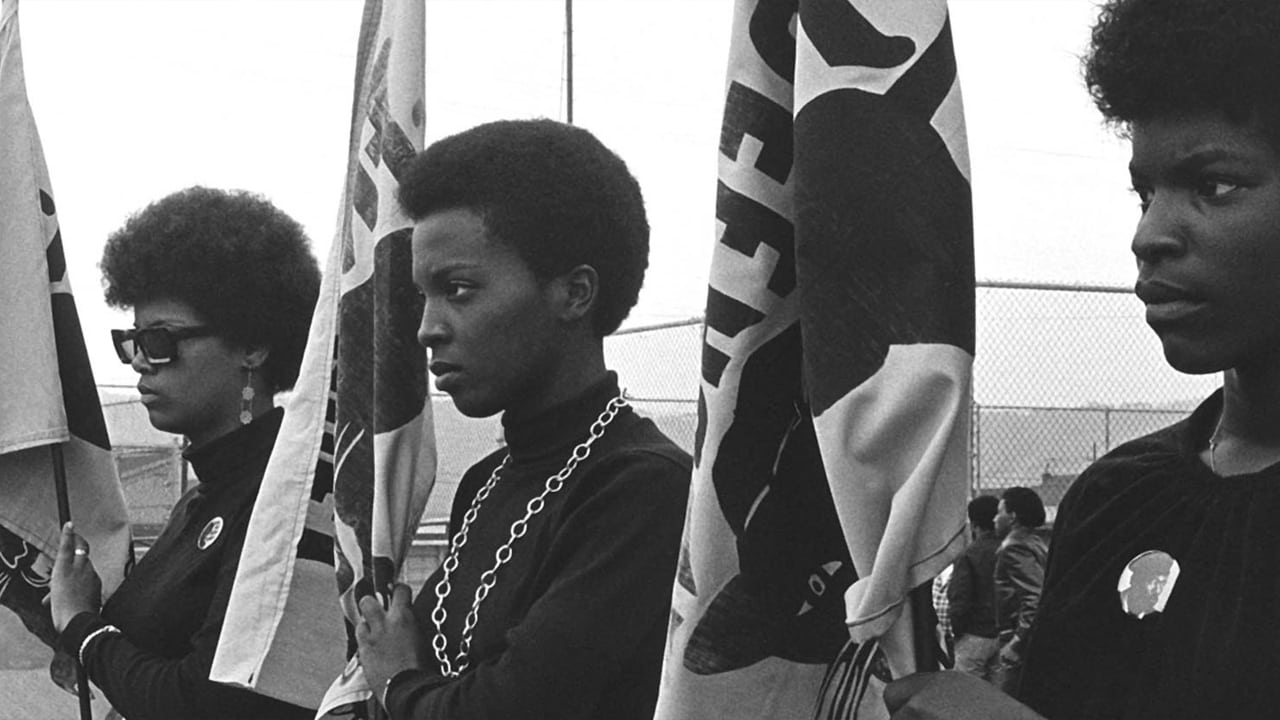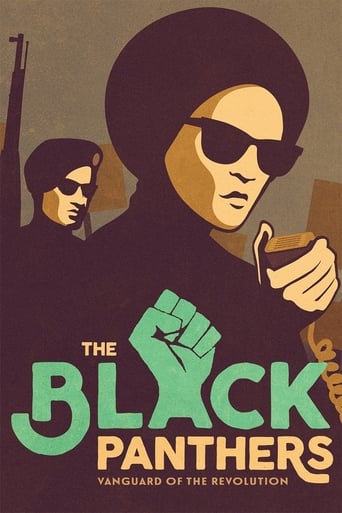

What a waste of my time!!!
... View MoreA Brilliant Conflict
... View MoreThis is a must-see and one of the best documentaries - and films - of this year.
... View MoreThe plot isn't so bad, but the pace of storytelling is too slow which makes people bored. Certain moments are so obvious and unnecessary for the main plot. I would've fast-forwarded those moments if it was an online streaming. The ending looks like implying a sequel, not sure if this movie will get one
... View MoreThis is a film to rally the faithful. But it needs more than that to justify the sub-title 'Vanguard of the Revolution', when we're looking at a movement that was fatally split in half through conflict between its leaders, in the style of most far-left groups, and which has effectively ceased to exist. "We were making history" enthuses one supporter. Hmm...True, director Stanley J. Nelson Jr. has made quite a strong case that the split was skilfully and secretly provoked by the FBI under J. Edgar Hoover, who openly declared the Panthers to be a prime threat to national security. But there's nothing new about divide-and-rule, and a united party leadership ought to be proof against it.One philosophical survivor of the movement sums it up well in an ironical post-mortem. "The strength of the Panthers was its ideals and its youthful enthusiasm. The weakness of the Panthers was its ideals and its youthful enthusiasm." At times, the movement can look like a dress-rehearsal for the Nation of Islam, with its solemn drill parades. At others, it just looks like hooligans on the rampage. Those seeking to be convinced by cogent and consistent argument are liable to come away disappointed. "I'm important enough to be arrested. I'm a real Panther now." says one of its senior officers, as though he was fourteen years old. And when Bobby Seale fails to be elected mayor of Oakland, the Panthers cry "He's going to be OUR mayor!" Finally, you're better not looking too closely at Cleaver and Newton. Especially Cleaver, who went careering round in circles, and ended up as a right-wing Republican, voting for Reagan.
... View MoreReview: This is an extremely deep documentary about the rise and fall of the Black Panthers in America, and I must admit, I did find some of it slightly boring. Don't get me wrong, I did find the subject matter very interesting and the various interviews with fellow members and witnesses to the terrible police brutality towards them, was very touching but it does drag a bit and I personally don't find watching Black people getting treated like animals, that entertaining. I was left feeling extremely bitter when this graphic documentary had finished but I still learnt a lot about this powerful movement. The different scenarios which are highlighted throughout the movie, were quite shocking, especially the corruption with the law, but it was still good to see how far a radical group can go, when they pull together to fight for there rights. I will say this though, you really have to be in the right frame of mind to watch it because there are some scenes which are pretty upsetting but it's still worth a watch. Anyway, if your into your black history films, then this is definitely the movie for you, because it's an important part of history which will never be forgotten. Watchable!Round-Up: This documentary was written and directed by Stanley Nelson, 60, who has brought you various documentaries, like The Black Press, Marcus Garvey, Beyond Brown, A Place Of Our Own, Jonestown, Wounded Knee and Freedom Summer, which are all based around important periods in black history. He certainly done well to get interviews with different Black Panther members and officers of the law but it really didn't have to be nearly 2 hours long.Budget: N/A Worldwide Gross: $600,000I recommend this movie to people who are into their documentaries about the rise and fall of the Black Panthers. 5/10
... View MoreThis is a heroic attempt at a one-film history of the Panthers. It suffers only from its own ambition- this is too complex a subject to offer a "history of" in the length of a single feature film. The best parts of the film are the stirring, emotional recounts of battles with agents of the state by revolutionaries who were on the front lines, heroes most of us have never before heard of. The portraits offered of the iconic Party leaders were a bit more problematic, or simply lacking. The presentation of Huey Newton is far too simplistic. One comes away with a sketch of a sociopath who the Party naively turned into an icon. While there is credible documentation of Newton's erratic behavior and drug abuse after spending many years in prison on likely trumped up charges, watching this film you would not know of Newton's extensive and influential writings on revolutionary theory, including his ground-breaking advocacy of the Gay- Equality struggle. Other important strands of Panther history were simply lacking. There is, for instance, no mention of George Jackson or the Angola Three. Still, a fine attempt to do a lot with too little space and time.
... View MoreWith the heightened sense of racism that has been projected in the media in the last 12 months (not that it didn't exist without all the publicity), director Stanley Nelson's recollection of the fight for civil rights with The Black Panthers on the front lines seems highly appropriate at this juncture. While some deemed the party's actions as bold and arrogant, the passion for equal rights was front and center. Nelson divulges frank interviews with former Black Panther members as they discuss their methods that exploited the media to further their cause as well as the rallies that ignited the streets with support and outrage. The true enthrallment comes from the dastardly deeds of J. Edgar Hoover and his Counterintelligence Program that tracked, tapped, and falsified personal letters to members of the Black Panther party. The first Director of the FBI even convinced detained party members to turn on their organization and become government informants. It's an accounting with so many outrageous points it has to be true. -Jimmy Martin
... View More